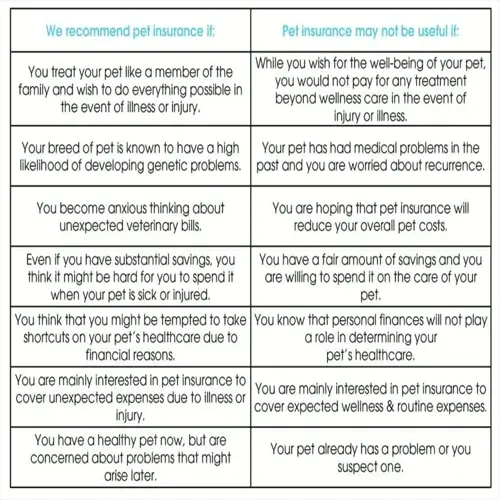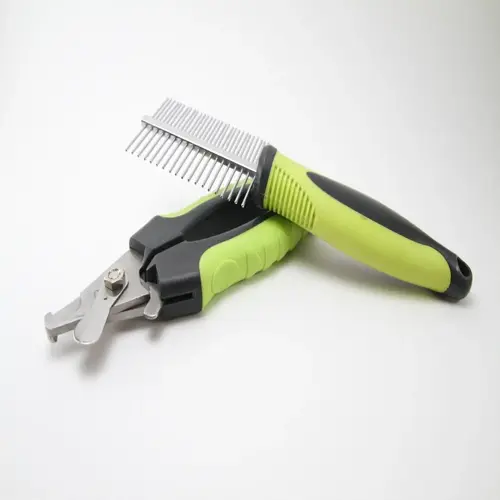Comprehensive Pet Relocation Services Explained

Written by
John Williams
Reviewed by
Prof. Edward Clarke, Ph.D.Pet relocation services facilitate the transportation process from point A to point B with safety regulations related to species being observed.
International relocations involve a precise document flow process to confirm compliance with entry regulations that vary from country to country.
Crisis management, provided by the company as part of their experience, will avoid travel disruption via a pre-arranged backup plan in the event of delay or cancellation.
Quarantine services are regarded as mandatory and each facility has a veterinarian who limits animal stress levels through supervised care.
Certified Partners provide legal protections in the form of contracts that include liability and service guarantees.
Crate acclimatization in advance of training travel can relieve travel anxiety by positive confinement conditioning.
Article Navigation
You're getting ready for an overseas move with your anxious Labrador. You learn that you have conflicting entry rules for pets, and panic begins to set in. You realize this is a necessity for pet relocation services. These professionals will transfer a pet across the border. They know how to handle complicated logistics that you can't handle yourself.
I had a client whose cat was placed in quarantine due to a lack of paperwork. We were able to resolve the issue by providing the necessary documentation.Pet relocation services offer these three important features. First, they will ensure that all documents and protocols are followed to meet international regulations. Second, they take the work off of you. Third, they will preserve the welfare of your animals at all times on their journey.
This guide demystifies the overwhelming moving process. We clarify all aspects using simple words. You shall learn how the professionals handle the health certificate. You will understand the acclimatization of crates. Our goal is to give you the confidence to move your pet.
What Pet Relocation Services Include
Professional services for relocating pets offer comprehensive, door-to-door solutions. Teams pick up your pet at home and use climate-controlled vehicles. They arrange airport transfers and customs clearance. I moved a Persian cat from London to Tokyo. All phases were monitored to prevent extreme temperature fluctuations.
Document management is important for international moves. Professionals will prepare rabies certificates and import permits, and understand each country's rules. For example, Australia requires that microchips be implanted before vaccination, and Brazil specifies the parasite treatments that will be given. These details will facilitate the prevention of quarantine catastrophes.
Specialized enclosures house various kinds of animals. Fowl are transported in darkened and silent boxes for the sake of lessening the stress of the trip. Reptiles need humidity-controlled cages with heating pads. Small mammals go in cages that are chew-proof. We have transported a ferret in escape-proof cages that were locked with many locks.
Real-time tracking helps ease some anxiety as it allows you to receive alerts during connections or temperature changes. One client was able to monitor their dog's flight path in real-time, even during a storm delay! This provides pet owners with visibility and some peace of mind throughout the travel journey.

Door-to-Door Transport
- Professional drivers collect pets directly from homes using climate-controlled vehicles designed for animal safety during local transfers between locations
- Airport handling specialists manage secure transfers between ground transport and aircraft cargo facilities following IATA live animal regulations precisely
- Final delivery teams reunite pets with owners at destination addresses minimizing post-travel stress through calm reintroduction protocols
- Customized vehicle setups include non-slip flooring and adjustable partitions ensuring stability and comfort during road transportation segments
- Route optimization software calculates pet-friendly paths avoiding extreme weather conditions and minimizing overall transit duration effectively
- Emergency response protocols activate veterinary assistance if travel delays exceed predetermined safety thresholds during any transport phase
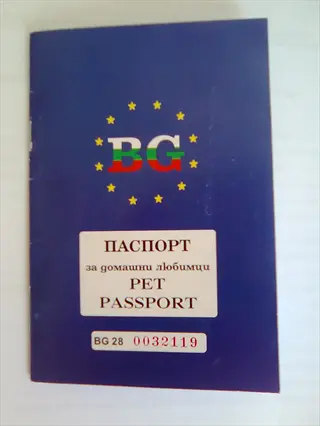
Documentation Management
- Experts prepare country-specific veterinary certificates including USDA endorsements and EU pet passports ensuring compliance with rabies titer test requirements
- Customs declaration forms are completed accurately with harmonized system codes to prevent border delays during international pet transport processes
- Airline waivers for snub-nosed breeds are secured in advance addressing unique respiratory concerns during air transport arrangements
- Import permit applications are submitted electronically meeting destination country processing timelines of 4-6 weeks before relocation
- Electronic document backups are maintained in secure cloud systems accessible during customs inspections if originals are misplaced
- Translation services convert health certificates into 15+ languages ensuring compliance with non-English speaking country requirements
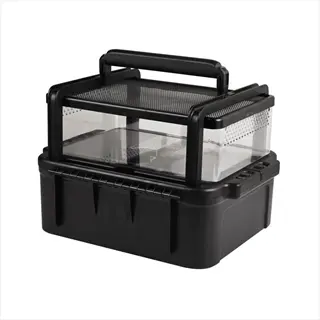
Species-Specific Accommodations
- Brachycephalic dog breeds receive pressurized oxygen systems and enlarged crates meeting IATA container requirements for safe air transportation
- Reptile containers maintain precise humidity levels using calibrated monitoring systems during transit to prevent dehydration in sensitive species
- Equine transports utilize FAA-approved air stalls with non-slip flooring and adjustable partitions ensuring horse safety during international flights
- Avian carriers incorporate sound-dampening materials and low-stress lighting conditions reducing anxiety for parrot and songbird species in transit
- Aquatic life systems maintain water parameters within 1°F (0.5°C) of optimal ranges using battery-powered filtration during air transport
- Small mammal enclosures include chew-proof ventilation and nesting materials replicating natural habitats for guinea pigs and hamsters
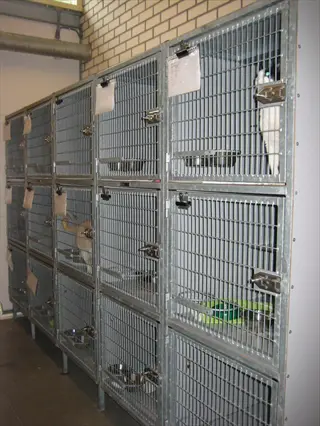
Quarantine Coordination
- Pre-booked quarantine spaces in government-approved facilities include daily veterinary checks and socialization sessions minimizing isolation stress periods
- Required parasite treatments are administered by certified veterinarians before quarantine entry meeting destination country biosecurity protocols exactly
- Documentation for home quarantine alternatives is arranged for elderly pets with medical needs reducing facility confinement duration significantly
- Personal item transfers deliver familiar bedding and toys to quarantine facilities maintaining scent familiarity during mandatory isolation periods
- Daily photo updates show pets during exercise sessions providing visual confirmation of wellbeing to concerned owners remotely
- Early release applications are filed where possible using expedited veterinary clearance processes after minimum quarantine durations
Real-Time Tracking
- Dedicated mobile applications provide live location updates during transport stages including airport transfers and customs clearance checkpoints
- Temperature and humidity sensors inside crates transmit environmental data allowing immediate intervention if conditions deviate from safe parameters
- Photo updates are sent at key milestones such as pre-flight checks and post-landing veterinary inspections reassuring anxious pet owners remotely
- Automated alerts notify owners about flight schedule changes 6+ hours before standard airline announcements enabling contingency planning
- Crate monitoring systems detect unusual inactivity patterns triggering veterinary consultations during extended transit operations proactively
- Secure web portals archive all transit documents and tracking history for 90 days post-relocation supporting insurance claims if needed
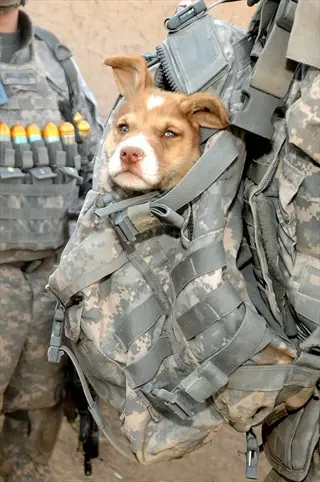
Military Relocation Support
- PCS moves are coordinated with base veterinarians ensuring compliance with military transport regulations for overseas deployments and reassignments
- Group transport solutions are arranged for multiple-pet families using climate-controlled charters reducing costs for service members during transfers
- Dedicated liaisons coordinate with commanding officers to align pet transfers with personnel movement schedules minimizing family separation time
- DD Form 2209 processing is handled for rabies vaccination documentation meeting Department of Defense requirements for overseas assignments
- Base access coordination ensures seamless handovers at restricted military facilities using pre-cleared personnel credentials and vehicle permits
- Storage solutions are provided for pet supplies during transitional housing periods when service members await permanent accommodations
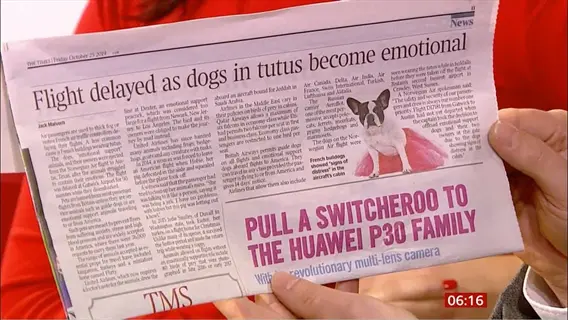
Crisis Management
- Backup flight routing is pre-arranged with partner airlines ensuring quick rebooking when connections are missed or flights experience cancellations
- Emergency veterinary networks at major airports provide immediate care if health concerns arise during unexpected travel delays or layovers
- Document redundancy systems maintain digital copies of health certificates preventing issues if original paperwork is lost during complex itineraries
- Contingency kenneling activates at 50+ major airports providing climate-controlled holding areas during minimum 12-hour flight disruptions
- Multi-lingual support teams intervene during customs disputes resolving documentation discrepancies within 2-hour response time guarantees
- Insurance claim assistance navigates reimbursement processes for unexpected expenses exceeding original relocation estimates significantly
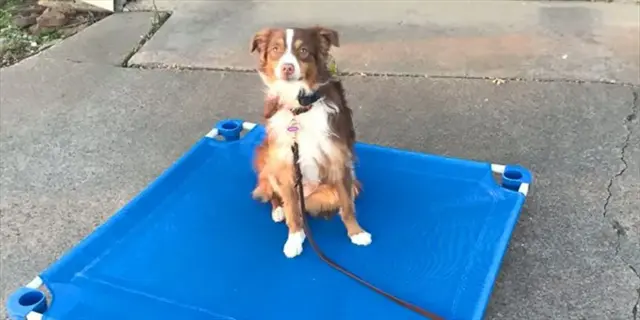
Pre-Travel Kennel Training
- Four-week acclimatization programs introduce pets to IATA-compliant crates using positive reinforcement techniques building comfort before journeys
- Graduated confinement exercises simulate flight durations helping animals adjust to extended periods in transport containers without anxiety
- Feeding routines inside crates establish positive associations reducing stress during actual transport operations and airport handling procedures
- Environmental sound recordings familiarize pets with aircraft noise profiles at controlled volumes below 85 decibels for safety
- Separation anxiety protocols implement gradual owner-absence intervals matching typical flight durations of 8-14 hours progressively
- Veterinary-supervised trial runs assess physiological responses to crate confinement ensuring fitness for extended transport operations
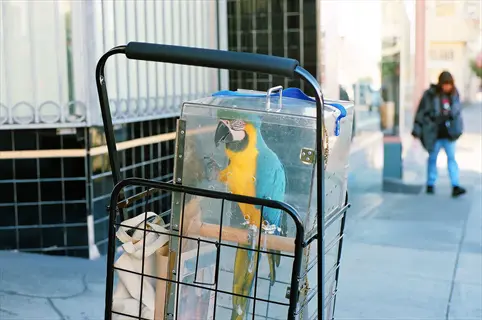
Exotic Pet Specialization
- CITES permits for endangered species are obtained in advance preventing customs seizures of protected birds reptiles and tropical fish during transit
- Species-specific containers maintain precise environmental conditions including temperature-controlled units for reptiles and ventilated modules for birds
- Specialized handlers accompany sensitive species providing in-transit care and monitoring during long-haul flights ensuring continuous welfare oversight
- Metabolic rate management implements species-specific fasting protocols before transport optimizing digestion cycles for diverse animal types
- Light-cycle simulation maintains natural circadian rhythms using programmable LED systems during extended transit exceeding 24-hour durations
- Taxidermy certification documentation is prepared for preserved specimens meeting international border control requirements ethically
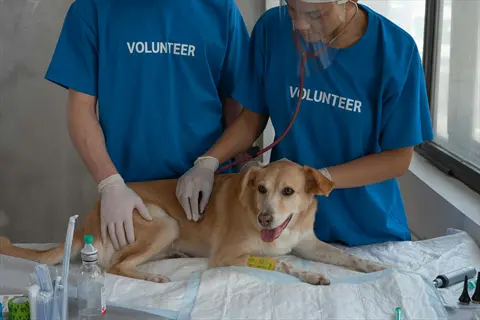
Post-Arrival Support
- Destination veterinarians conduct wellness checks within 24 hours of arrival verifying pet health after transport and addressing any travel-related concerns
- Local regulatory guidance is provided for new owners covering leash laws microchip registration and area-specific vaccination requirements post-relocation
- Behavioral specialists offer consultations helping pets adjust to new environments through customized anxiety-reduction techniques and routine establishment
- Emergency hotlines operate 24/7 for 30 days post-move addressing immediate settling-in concerns with local veterinary network coordination
- Microchip registration transfers are processed with national databases ensuring contact information updates within 48 hours of relocation completion
- Local service referrals connect owners with trusted groomers trainers and pet-sitters familiar with relocation adjustment challenges specifically
International Pet Transport Regulations
Different countries have strict regulations regarding the importation of pets. The European Union requires an EU pet passport and treatment for tapeworm types 1-5 days before arrival. Australia requires rabies titer tests to be done over 30 days before travel. Japan has a 180-day waiting period after the pets have been vaccinated. United States, health certificates can be issued to pets that are less than 10 days old before traveling.
Performing rabies blood tests requires careful timing. You must undergo the rabies titer test at least 30 days prior to departure. This is the best time for obtaining valid results. I assisted a family in rescheduling their move with tests arriving late. Otherwise, their golden retriever would have faced quarantine, I am sure.
Travel plans can be affected by breed restrictions. For example, some airlines prohibit certain breeds, including snub-nosed dogs, such as bulldogs, due to breathing problems associated with their snouts. Emirates recently announced it will not allow bulldogs to fly during the summer months. Some states in the US ban pit bull terriers completely. Before making reservations for transportation, please check the rules regarding breed restrictions.
Paperwork expiration results in much delay. Health certificates are valid only for 10 days in most countries. Import permits are valid for a maximum of 30 days. One client's expired paperwork caused their cat to be held by customs for 3 days. Pet Relocation Services: Watch these deadlines closely.
How Pet Relocation Works Step by Step
Moving starts with a consultation 1-3 months before travel. You provide me with information about your pets and your travel dates. My specialists assess your pet's cabin or cargo options based on their breed and size, and provide you with the costs and associated responsibilities. I read over airline policies with clients to avoid surprises later.
Document preparation starts 4-8 weeks out. Your job is to plan the vet visits, and the specialists will work on the permits and certificates. Time is very short for rabies titer tests, requiring 30 days. If deadlines are missed, delays will occur. We expedited the paperwork for a last-minute military transfer once.
Precautions for travel will begin one week prior to departure. Last-minute training sessions are performed on crates. Specialists verify all health certificates and fasting schedules. Temperature control mechanisms are verified in vehicles. During a heat wave, we rerouted a bulldog through cooler airports.
On travel day, specialists take care of everything. They monitor the loading of the crate and connections between flights. You will receive GPS updates on your pet's progress during the travels. They deliver your pets to your home on reunion. My team stayed overnight once due to delays to make sure a cat was well cared for.
Initial Consultation (1-3 Months Pre-Travel)
- Free quote request: Owners provide pet details (species, weight, breed) and travel itinerary
- Needs assessment: Specialists evaluate cabin vs cargo options based on pet size and airline policies
- Service agreement: Contract outlines costs, responsibilities, and contingency plans
Documentation Preparation (4-8 Weeks Pre-Travel)
- Veterinary coordination: Blood tests for rabies titers and parasite treatments scheduled
- Microchip implantation: ISO 11784/85 compliant chip inserted if not present
- Permit applications: Import licenses and country-specific forms submitted electronically
Travel Planning (3-4 Weeks Pre-Travel)
- Route optimization: Direct flights prioritized; layovers minimized to under 4 hours
- Kennel selection: IATA-compliant crate sized for pet's standing/turning ability
- Acclimatization protocol: 30-minute daily crate sessions increase to 8-hour simulations
Pre-Travel Preparation (1 Week Pre-Travel)
- Fasting schedule: Food withheld 4-6 hours pre-flight; water available until loading
- Health verification: Final vet exam within 10 days of departure for certificate
- Packing protocol: Absorbent liners, familiar toys, and collapsible bowls secured in crate
Transport Execution (Travel Day)
- Home pickup: Climate-controlled vehicle collects pet with temperature monitoring
- Airport processing: Cargo handlers secure crate in pressurized, temperature-controlled hold
- In-transit tracking: GPS updates sent hourly; environmental sensors alert for deviations
Arrival Procedures (0-48 Hours Post-Landing)
- Customs clearance: Agents present original documents with digital backups
- Quarantine transfer: Pre-booked facility staff collect pets requiring isolation
- Veterinary inspection: Mandatory health check at first point of entry
Reunion & Post-Arrival (24-72 Hours Post-Clearance)
- Home delivery: Pets reunited at destination address with calm reintroduction protocols
- Wellness check: Local vet examines pet within 24 hours of release
- Adjustment support: Behaviorists provide settling-in guidance for 30 days
Choosing a Certified Pet Relocation Partner
Always choose relocation partners certified by IPATA. This certification is the highest standard in the industry. I check credentials through IPATA's accredited online directory. True certification means training in IATA animal regulations. Spurious operators create paperwork disasters during international relocations.
Before you hire, what are a company's capabilities for crisis management? Check on back-up flights and veterinary networks. Quality partners have emergency plans in place for weather disruptions. For instance, my staff activated alternative routing during a hurricane. The animals arrived safely and without delay.
Insist on contractual protections for your peace of mind, demand money-back guarantees for service failures. Require minimum $1,000,000 liability insurance coverage. Notice the cancellation policies to prevent hidden fees. I review each paragraph of the contracts with my clients personally.
Thoroughly assess their species-specific experience. Ask for similar references to your kind of moves. Check for equipment for exotic animals like reptiles or birds. We have climate-controlled units for tropical birds. This skill prevents health hazards during the process.
IPATA Certification Verification
- Confirm active membership through IPATA's online directory at ipata.org
- Require proof of current accreditation documents showing expiration date
- Verify specialized training in IATA Live Animals Regulations completion
- Check complaint history through IPATA's dispute resolution records
Species-Specific Experience
- Request references for similar pet relocations (breed, species, route)
- Confirm equipment capabilities: reptile humidity controls, equine air stalls
- Review staff training records for exotic animal handling certifications
- Validate emergency veterinary networks at transit hubs worldwide
Service Guarantees
- Require written door-to-door execution plan with timeline commitments
- Demand 24/7 communication protocol with dedicated response contacts
- Insist on real-time tracking system demonstrations before commitment
- Secure price transparency with all potential fees itemized upfront
Crisis Management Protocols
- Documented backup flight arrangements with multiple airline partners
- On-call veterinary support at 50+ major international airports
- Digital document redundancy system with cloud-based access
- Weather disruption response plan for temperature-sensitive species
Contractual Protections
- Money-back guarantee clauses for service failures
- Liability insurance coverage minimum of $1 million USD
- Clear cancellation/rescheduling policies without hidden penalties
- Data protection compliance (GDPR/CCPA) for personal information
Client Support Systems
- Multilingual staff availability covering 15+ languages
- Military relocation program documentation for PCS moves
- Post-arrival adjustment support with local partner network
- Online portal access for document management and updates
Preparing Your Pet for Travel
Medical preparations should begin eight weeks before your travel. You will need to take your pet to the veterinarian for a full check-up and to receive vaccinations and parasite treatments. Rabies titers for international transport need a minimum of 30 days for completion. The veterinarian may sign health certificates within 10 days of your departure date. I always encourage starting early to perfect the arrangements and avoid last-minute problems.
Starting crate training 6 weeks in advance, the crate should be introduced gradually with positive reinforcement, placing treats and familiar bedding inside the crate, and slowly increasing the confinement from 15 minutes to 8 hours a day. This will make them comfortable with the crate before the trip.
Use caution in observing fasting protocols. Medium-sized dogs fast from food for six hours before flights, but water should be available. Small pets fast for four hours. For long trips, water may be frozen in bowls. I once avoided dehydrating a cat during a 14-hour flight in this way.
Pack important crate items for safety. Packing absorbent bedding and collapsible bowls. Health papers must be attached to the outside of the crate. Familiar toys provide comfort. For a nervous terrier, I put in the owner's worn T-shirt. An enormous reduction in stress was achieved.
Medical Preparation (4-8 Weeks Pre-Travel)
- Schedule comprehensive veterinary exam ensuring all vaccinations are current and properly documented
- Complete rabies titer test at least 30 days before departure to meet international requirements
- Administer parasite treatments for internal and external pests according to destination country regulations
- Obtain species-specific health certificates signed within 10 days of travel commencement date
Crate Acclimatization (4-6 Weeks Pre-Travel)
- Introduce IATA-approved crate gradually starting with 15-minute daily sessions with positive reinforcement
- Increase confinement duration weekly until pet tolerates 8+ hours comfortably without distress signs
- Place familiar bedding and toys inside crate to establish positive associations with the space
- Conduct trial runs by taking short drives with pet secured in crate for real-world adaptation
Diet and Hydration Protocol
- Maintain regular feeding schedule until 12 hours pre-departure then transition to light meals only
- Withhold food completely 4-6 hours before flight time while providing water until crate loading
- Freeze water in spill-proof bowls for long flights ensuring hydration without flooding crate bedding
- Pack familiar treats for post-arrival rewards helping reduce travel-related stress reactions
Essential Travel Kit Preparation
- Include absorbent bedding layers that can be easily replaced during long journeys if accidents occur
- Attach collapsible food/water bowls that fit securely to crate walls without tipping during transit
- Pack current health documents in waterproof pouch attached externally to crate for quick access
- Include favorite chew toys or comfort items carrying familiar scents to reduce anxiety
Exercise and Anxiety Management
- Provide vigorous exercise 12 hours pre-travel to ensure pet is adequately tired before confinement
- Use vet-approved calming supplements or pheromone sprays if anxiety symptoms persist during trials
- Practice separation gradually increasing duration to match estimated flight times for conditioning
- Record familiar sounds (owner's voice, home environment) to play softly during transport
Emergency Preparedness
- Prepare temporary ID tags with destination contact information in addition to permanent microchip
- Pack basic first-aid supplies including wound care items and any regular medications in leakproof bags
- Provide detailed feeding instructions and behavioral notes for handlers during extended transit periods
- Share veterinary contact information for both origin and destination locations with relocation team
5 Common Myths
Pets can freeze to death in airline cargo holds because of the very chilly temperatures
Cargo compartments of modern aircraft are pressurized and temperature controlled and maintained in the range of 15-25C (59-77F) appropriate for the transport of live animals. Automated monitoring systems should activate alarms should conditions be deviated from. Airlines have fairly strict temperature regulations that must be complied with on any flight that carries pets, regulating temperatures that might imperil those pets during the transport period.
Relocation for dogs and cats only, as the only animals that can be transported internationally, is through professional companies
@Verified pet relocation companies carry exotic animals, including birds, reptiles, small mammals and horses. These companies use special containers with atmospheric control. Special services are available for those who need them. CITES permits are needed for special animals like protected species, humidity-regulated reptiles, and FAA-approved stalls.
Handling pet relocation yourself is a considerable savings account compared to professionally done pet relocation
But DIY relocation also involves many hidden costs such as customs fines for incorrect paperwork, re-examinations by the pet veterinarian after being denied for boarding, last minute flight changes. Professional services give you pre-negotiated airline rates, discounts for bulk processing of permits, contingencies built into their system which usually reduces total costs by 30%-50% while eliminating all regulatory hassles.
Compulsory quarantine environments can expose pets to stressful and unhealthy conditions.
Government-approved quarantine facilities provide pet-care overseen by veterinary staff with individual climate controlled kennels, supervised socialisation sessions and medical overseers. The facilities such as the government quarantine of Australia with a policy of 10 days has cameras for owners to view their pets and environmental enrichment such as toys and objects which are of benefit to pets for minimising stress while not breaking bio-security protocols.
Each airline has common safety policies and standards for transporting pets
There are many variations in the way airlines carry pets, such as restrictions on certain breeds, embargo policies, and specifications regarding the designated hold in which pets are kept. Professional relocation specialists book carriers with documented records indicating pet safety and avoid airlines using seasonal embargoes or breed embargoes which may restrict animal welfare in transit.
Conclusion
Specialized pet relocation services offer unmatched safety and peace of mind. They eliminate regulatory risks and handle complex logistics. Your pet enjoys the best care during the process. I have seen countless stress-free reunions because families went to certified specialists rather than attempting to do their own moving.
Remember that step-by-step process we've been through, from the beginning documents to crate acclimatization. Each step reduces your workload and protects your pet. Compliance with regulations is not an option when moving internationally. One form missing can cause your pet to spend months in quarantine. Trained professionals will help prevent that nightmare.
Reach out to an *IPATA-certified partner* now! Provide the particulars of your relocation for a tailor-made program. Your documents will be authenticated, and your pet's requirements will be outlined. My staff offers free consultations to address your questions. Start your pet's secure journey with pet-loving experts.
External Sources
Frequently Asked Questions
What is included in pet relocation services?
Professional pet relocation services cover door-to-door transport, documentation management for international regulations, species-specific accommodations, quarantine coordination, and real-time tracking. They handle everything from health certificates to climate-controlled transportation.
How much does international pet relocation cost?
Costs vary by destination and pet requirements but typically include veterinary fees, travel crates, permits, and professional handling. Factors like flight distance and quarantine needs significantly impact pricing.
Is air travel safe for pets?
Yes, when using certified relocation services. They ensure pets travel in pressurized, temperature-controlled aircraft holds with continuous monitoring. Airlines follow strict IATA live animal regulations for safety.
What documentation is needed for pet relocation?
Essential documents include:
- Rabies vaccination certificates
- International health certificates
- Microchip documentation
- Country-specific import permits
- CITES permits for protected species
How long before travel should I start preparing my pet?
Begin preparations 2-3 months before relocation for vaccinations, crate training, and documentation processing. This allows time for rabies titer tests and acclimatization.
Can exotic pets be relocated internationally?
Yes, certified services transport birds, reptiles, and exotic mammals using specialized containers with environmental controls and required CITES permits for protected species.
Do pets need quarantine when relocating?
Many countries require quarantine. Duration ranges from 10-180 days depending on destination regulations and documentation compliance. Professional services arrange government-approved facilities.
How are pets tracked during relocation?
Relocation services provide real-time GPS tracking, temperature/humidity monitoring inside crates, and photo updates at key transit points through dedicated mobile applications.
What should I pack in my pet's travel crate?
Essential items include:
- Absorbent bedding layers
- Collapsible food/water bowls
- Familiar toys with home scents
- Health documents in waterproof pouches
- Freeze water for long flights
How do I choose a reliable pet relocation company?
Select IPATA-certified professionals with species-specific experience. Verify their crisis management protocols, client references, and contractual guarantees before commitment.
